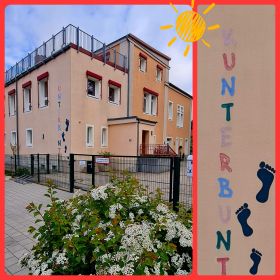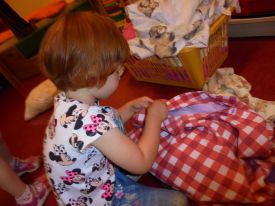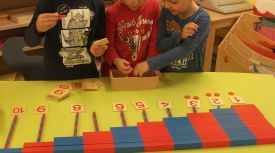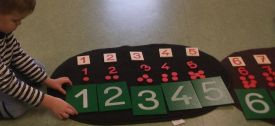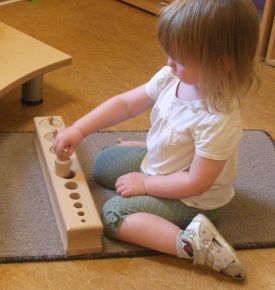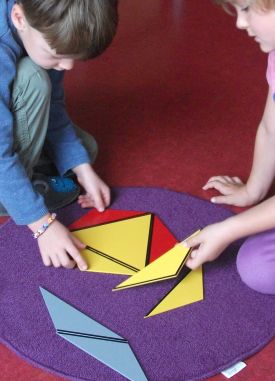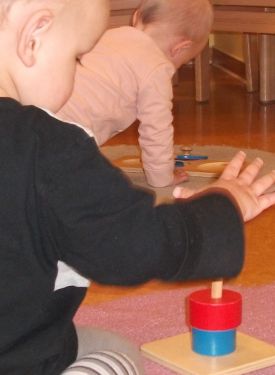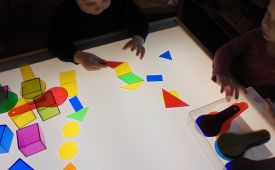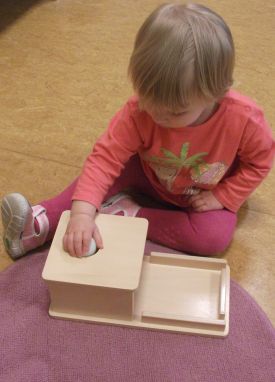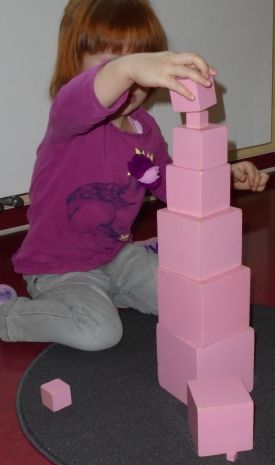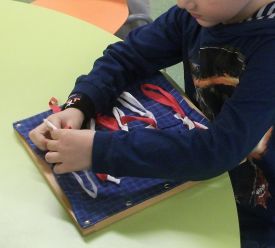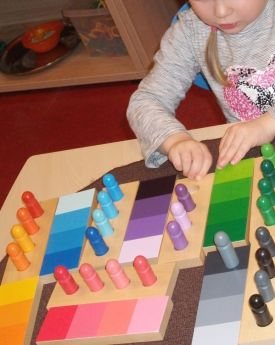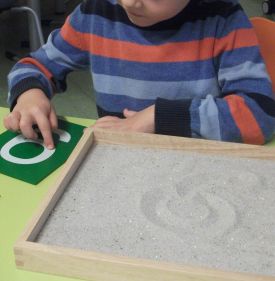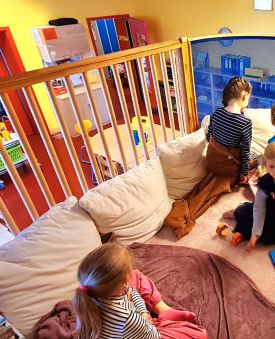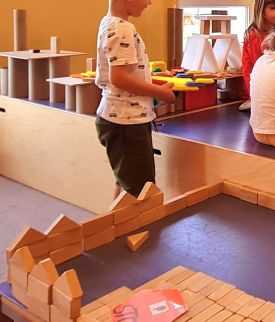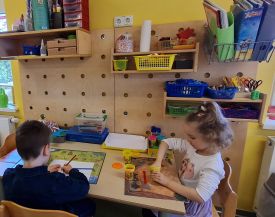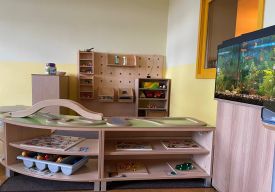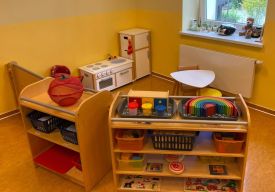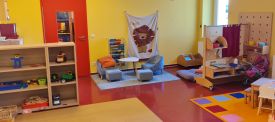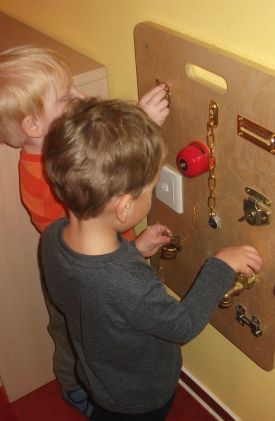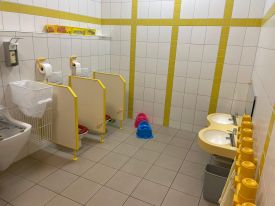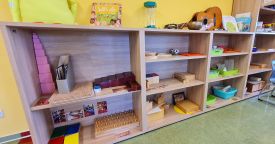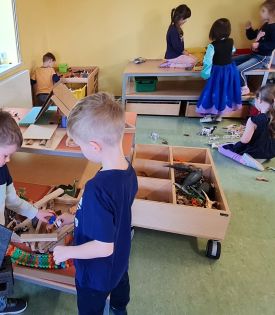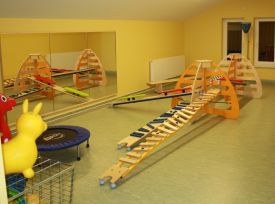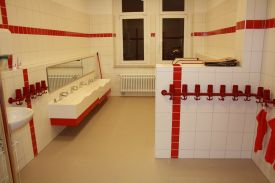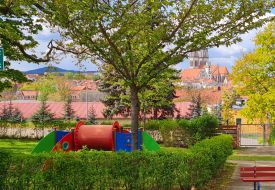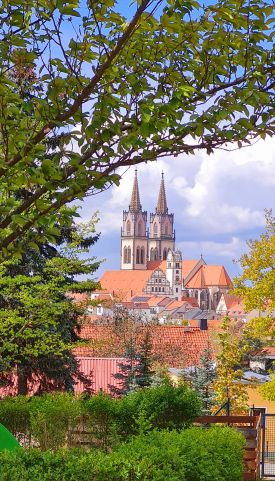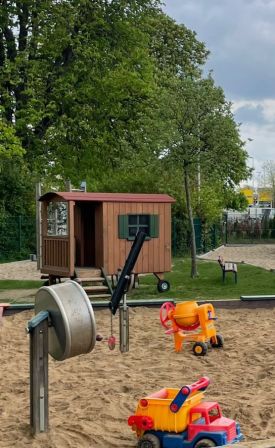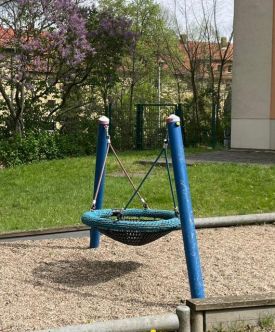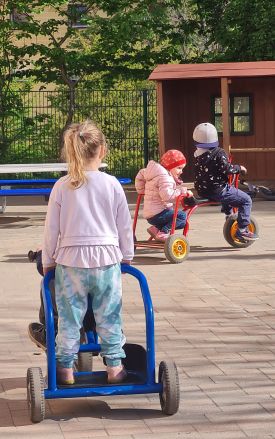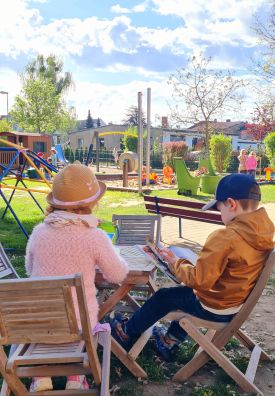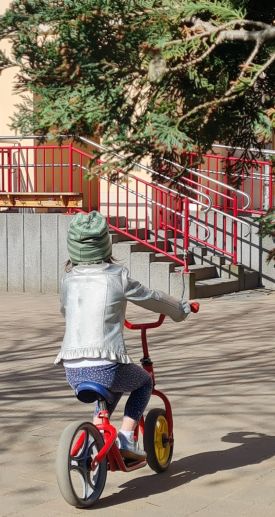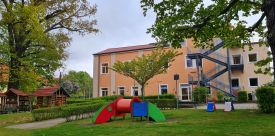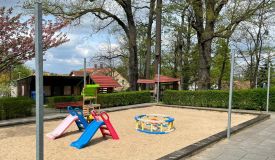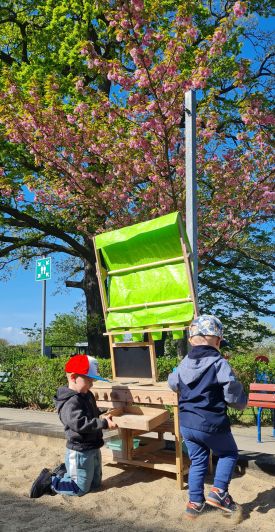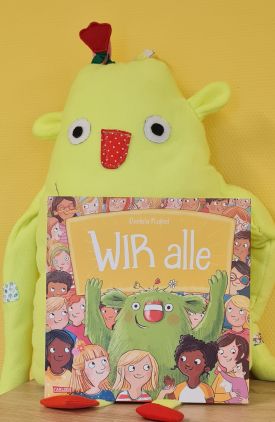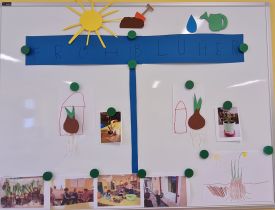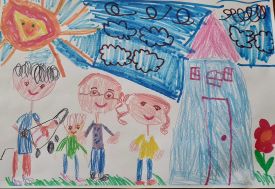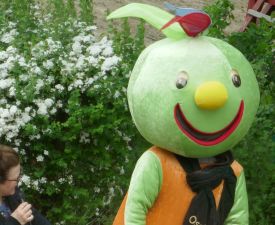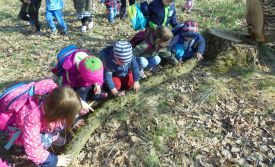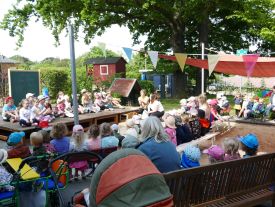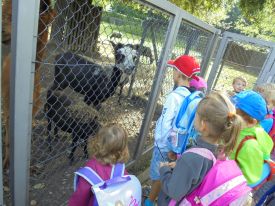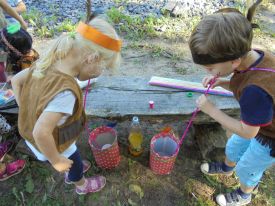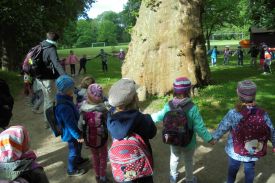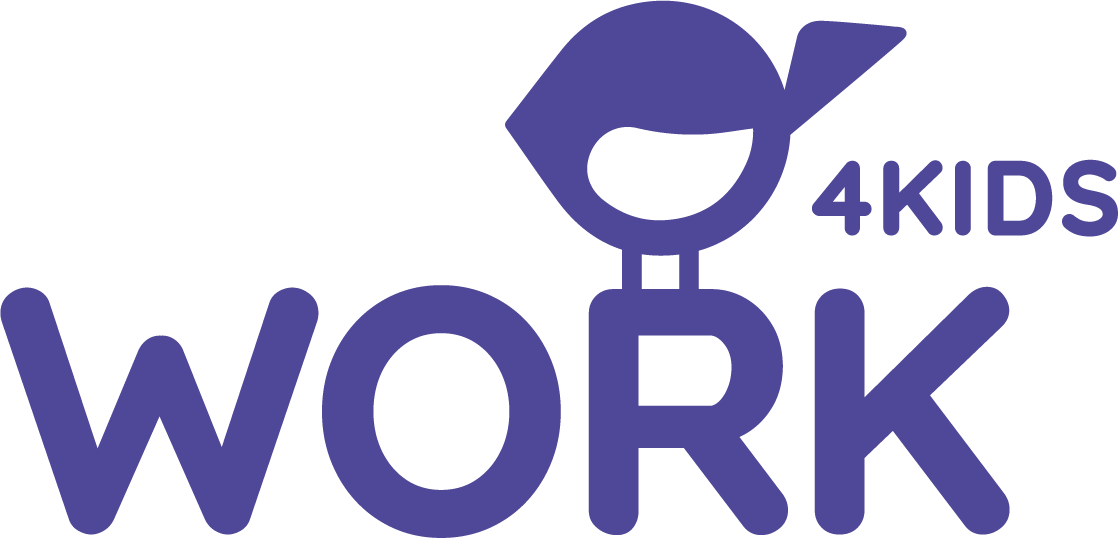Introduction/specifics
Introducing and special features of our daycare center „Kunterbunt“
„I will forget what I hear.
I will remember what I see.
I will understand what I do“
The „Kunterbunt“ daycare center offers the children a communal place filled with life. We have created a didactically prepared enviroment, without sensory overload and which encourages the children to take action by themselves. Our educational work is based on the Montessori concept, which is geared towards the needs and their „hunger“ to learn. We educational professionals see ourselves in the role of the observer and helper! We pave the childs path to independence by folloing the motto „HELP ME TO DO IT BY MYSELF“- a sentence that a child once said to Montessori. This sentence has become a guiding principle in their pedagogy!
Why is the daycare center „Kunterbunt“ based on the pedagogical concept of M. Montessori ?
Snce 2017, in parallel to the saxon education plan, we have increasingly been working according to the basic principles of the reform educator M. montessori. Intensive discussions with concepts, new approaches and current developmental psychology results from brain research, convinced us of the need of holistic learning! Montessori already recognized this need in her time and implemented it!
Maria Montessori, born in 1870, was way ahead of her time. In addition to her role as a mother, she worked as a natural scientist, italy´s first female doctor and educator. Through her cosmopolitan and humanistic attitude, she developed a new educational philosophy that is still very relevant today and has been successfully practiced for almost over a century.
M. Montessori is the founder of a pedagogy whose primary goal is the education of independence. She sees every child as an individual and supports each child in their own development. The focus is on her view of the child. Her view is non-judgemental and appreciative and has confidence in the childs ability to do something on their own.
The most important content of our work
Basic Principles and guiding principles in the Montessori pedagogy – this is important to us:
„Just as we can’t help the child’s physical growth, we can’t learn to become independent in their place! Building a personality is the primary task of every child!“ (Maria Montessori)
Our main goal is to raise children to be independent and self-confident. Learning processes are encouraged to the maximum, while still being adapted to the individual pace and rythym of learning. The basic idea of M. Montessori’s Concept is that children naturally have a strong desire to learn that needs to be motivated. To achieve this, every child in our daycare center will find a child-friendly enviroment prepared eith a variety of learning opportunities in which they can become active themselves!
The view of the child from the perspective of Montessori education
„The image of the child“ (Maria Montessori): For us, the focus is on the child and upbringing and education. Every child is different! And each of these children have a right to be recognized for their individual characteristics.
„The role of the educator“ (Maria Montessori): We educators are observers, companions and supporters of the child. Everyone participates in the childs development and:
- respects the child, shows him appreciation, love and trust
- Remainsreserved and observes the child’s activities
- ensures compliance with mutually agreed rules
- promotes increasing independence from adults
-acts consequently, patiently and empathetic
Observations an elementary pillar of our pedagogy
„Children have an inner blueprint according to which they want to develop“ (Maria Montessori)
We therefore see it as a very important part of our work to observe and document the developmental path of each child sensitively and without judgement. We follow closely where help is needed, but always according to the principle: „help me do it by myself“. We prepare the enviroment based on our observations so that the child can find everything it needs to mature to be independent and self-confident. We take note of his current interests and level of development and accordingly introduce new games and materials. In order to be able to accompany the personal development of the children entrusted to us, each child has their own portfolio. The said portfolio is accessible to every child and theit parents. It shows the childs development and tells the story of them growing up (observations, photos from everyday, drawings, stories and the child’s thoughts).
The idea of the spatial enviroment:
„not the child, but its surroundings should adjust“ (Maria Montessori)
Thats why the room:
- is designed by us to enable the child to be as independent as possible i.e. the rooms are adapted to the child’s needs
- is always freely accessible to the child
- is bright, friendly, lovingly and welcoming
- is clearly structured and ordered
-offers plenty of opportunities for exercise and challenges the child to be active
Essential materials for Maria Montessori for crèche and kindergarden age
„Help me do it by myself!“ (Maria Montessori)
With this sentence in mind, she developed numerous materials that teach the child skills and abilities in various areas.
Learning through active experiences is our focus. Our children find the essential Montessori materials in every age range from crèche to kindergarden up until preschool:
- Daily life exercises (e.g. pouring lentil, washing hands, laying cloths)
- Sensory material (e.g. inserting cylinders, noise boxes, touch boards, pink tower, brown stairs)
- language (e.g. moveable alphabet, sandpaper letters)
- mathematics (e.g. Numbers and chips, numerical bars, bead material, headstock)
- cosmic education (e.g. calendar, globe, marble run, Europe puzzle)
Every material in the room has its fixed place, which is marked by a picture. Games, that belong togehter are available for the child on a tray. The materials are accessible to the children at any time.
Everyday rituals in Montessori pedagogy
the exercise of silence (Maria Montessori): It occupies a fundamental place in the Montessori pedagogy and should be regularly included into the child’s daily routine.
„walking on the line“ or similar exercises offer children the opportunity to find their own thoughts and inner peace in a hectic enviroment, without expecting or demanding silence from the outside. Every child also finds places to retreat or islands of peace in their group room.
For us, Montessori pedagogy combined with the saxon educational plan, means professional action everyday.
It is important to us to always put new perspectives on children’s abilities. Our goal is to allow all children to participate in everyday life and to trust and hand over responsibility to them. To this day, we are on the way to further develop democratic structures in our daycare facility. For us, project work means taking in children’s questions, ideas and topics, giving them the right to have a say and participate in project groups as well as working on the project together with the kids.

